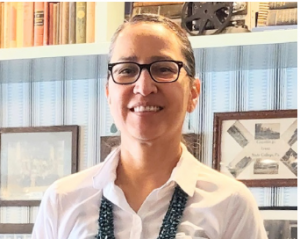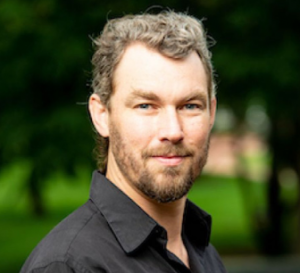“It Feels Fake:” Decolonizing Curriculum and Pedagogy in Predominantly White Institutions
by Hollie Anderson Kulago, Paul J. Guernsey, and Wayne Wapeemukwa
Many Indigenous and Indigenous-allied scholars recognize the importance of building and maintaining relationships with Indigenous peoples, families, and communities in their educational environs. We are scholars who, at the time of this study, lived and worked in Pennsylvania, where there are no Indigenous nations with federal or state recognized status. This is the case even though Indigenous peoples, including Haudenosaunee and Lenape, live on their original territories, and there are many other Indigenous peoples in public schools, on university campuses, and in community spaces, such as American Indian centers. In places where Indigenous nations hold state or federal recognition, partnerships with educational institutions have become routes that Indigenous nations use to advocate for their students, goals, and knowledges. Without that status, Indigenous peoples, families, communities, educators, and allies seek alternative routes.
There are few Indigenous communities near our campuses of Pennsylvania State University and Lafayette College (Easton, Pennsylvania). As Paul Guernsey describes in detail below, this is no accident. We acknowledge the colonial histories (and ongoing realities) of removal, dispossession, and genocide that led to this erasure. Many of the Indigenous peoples on whose lands the universities are situated thrive elsewhere as nations or within smaller pockets of community on traditional homelands. This context leads us to ask: How do we build relationships to this land if the political continuations or tribal nations of the Indigenous peoples of the area are not easily accessible here?
 Hollie Anderson Kulago (citizen of the Navajo Nation) is an associate professor in the Curriculum and Instruction Department at Penn State University. Her research interests include decolonizing, Indigenous curriculum and pedagogy, teacher education, and partnering with Indigenous nations and communities.
Hollie Anderson Kulago (citizen of the Navajo Nation) is an associate professor in the Curriculum and Instruction Department at Penn State University. Her research interests include decolonizing, Indigenous curriculum and pedagogy, teacher education, and partnering with Indigenous nations and communities.
 Paul J. Guernsey (European American) is a visiting assistant professor of environmental studies at the University of Montana. His academic background spans environmental ethics, philosophy, phenomenology, and policy, focusing on the material and ideological structures of settler colonialism and capitalism function as root causes of cyclical eco-social crisis. His work is published in Environment and Planning E: Nature and Space, Ethics, Policy & Environment, Interdisciplinary Studies in Literature and Environment, Educational Studies, and elsewhere.
Paul J. Guernsey (European American) is a visiting assistant professor of environmental studies at the University of Montana. His academic background spans environmental ethics, philosophy, phenomenology, and policy, focusing on the material and ideological structures of settler colonialism and capitalism function as root causes of cyclical eco-social crisis. His work is published in Environment and Planning E: Nature and Space, Ethics, Policy & Environment, Interdisciplinary Studies in Literature and Environment, Educational Studies, and elsewhere.
 Wayne Wapeemukwa is a doctoral candidate in philosophy at Penn State University. His research reanimates dialogue between Marxism and Indigenous political theories as they engage questions of land, race, capital, and history. He specializes in 19th and 20th century Marxism, its uptake among Indigenous activists, as well as Indigenous feminist approaches to decolonization. He is a citizen of the Métis Nation of British Columbia and member of the Chartered Métis Community of Waceya.
Wayne Wapeemukwa is a doctoral candidate in philosophy at Penn State University. His research reanimates dialogue between Marxism and Indigenous political theories as they engage questions of land, race, capital, and history. He specializes in 19th and 20th century Marxism, its uptake among Indigenous activists, as well as Indigenous feminist approaches to decolonization. He is a citizen of the Métis Nation of British Columbia and member of the Chartered Métis Community of Waceya.